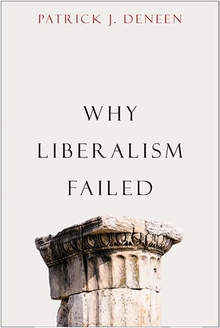
My blog gives all data, facts and statistics about global real politic economic system, factors of production, poverty and inequality. Also I give information about popular hedonic life of human-beings. I believe that economy science must become a holistic social science that includes all multi dimensions of human (body, mind, soul) and to give inspiration (motivation) to become perfect "homo-economicus" generations for the 21th century.
2/21/2018
Advanced Reproductive Technology
In November 2017, a baby named Emma Gibson was born in the state of Tennessee. Her birth, to a 25-year-old woman, was fairly typical, but one aspect made her story unique: she was conceived 24 years prior from anonymous donors, when Emma’s mother was just a year old. The embryo had been frozen for more than two decades before it was implanted into her mother’s uterus and grew into the baby who would be named Emma.
https://futurism.com/gatekeepers-future-reproductive-technology/
https://futurism.com/gatekeepers-future-reproductive-technology/
Your Future Doctor May Not be Human. This Is the Rise of AI in Medicine.
The applications for AI in medicine go beyond administrative drudge work, though. From powerful diagnostic algorithms to finely-tuned surgical robots, the technology is making its presence known across medical disciplines. Clearly, AI has a place in medicine; what we don’t know yet is its value. To imagine a future in which AI is an established part of a patient’s care team, we’ll first have to better understand how AI measures up to human doctors. How do they compare in terms of accuracy? What specific, or unique, contributions is AI able to make? In what way will AI be most helpful — and could it be potentially harmful — in the practice of medicine? Only once we’ve answered these questions can we begin to predict, then build, the AI-powered future that we want.
https://futurism.com/ai-medicine-doctor/
https://futurism.com/ai-medicine-doctor/
China air pollution...
China has an air pollution problem. But recently the country has worked to improve its air quality and reduce emissions. In 2017, China elected to shut down 40 percent of its factories, and announced plans to ban diesel-powered cars. In 2018, it became home to the world’s largest smog tower that is capable of reducing nearby air pollution by 15 percent.
Now, China is proceeding with a new plan: planting trees — 84,000 square kilometers (32,400 square miles) of them, to be exact.
How to Mine Big Data?
Machine learning. Hospitals now use predictive analytics to forecast the average stays and potential problems for operations, like hip surgery.
For instance, data from healthcare purchasers showed patients’ ages, core healthcare providers and secondary diagnosis. Using machine learning and predictive analysis, the data can now predict future costs and help identify patients who might have problems in recovery. The outcome? Hospitals make better clinical decisions, experience lower rates of readmission, offer shorter hospital stays, and provide better care.
The Etch Clock...

Every 30 seconds, the current time slowly materializes on the Etch’s thermoelastic membrane. Seven-segment numerals, reminiscent of a classic LCD clock, sit beneath the slate-colored face.
https://www.wired.com/story/fetish-etch-clock/
BLOCKCHAIN...
The blockchain is an undeniably ingenious invention – the brainchild of a person or group of people known by the pseudonym, Satoshi Nakamoto. But since then, it has evolved into something greater, and the main question every single person is asking is: What is Blockchain?
By allowing digital information to be distributed but not copied, blockchain technology created the backbone of a new type of internet. Originally devised for the digital currency, Bitcoin, (Buy Bitcoin) the tech community is now finding other potential uses for the technology.
Bitcoin has been called “digital gold,” and for a good reason. To date, the total value of the currency is close to $9 billion US. And blockchains can make other types of digital value. Like the internet (or your car), you don’t need to know how the blockchain works to use.
Blockchain...
A blockchain is a digitized, decentralized, public ledger of all crypto currency transactions. Blockchain has been popularized by Bitcoin and is very disruptive to all centralized corporate structures.
MIRACLE-GRO AEROGARDEN HARVEST WI-FI...
A garden on your countertop. Grow herbs, lettuce, tiny tomatoes in this all-in-one hydroponic setup. Companion mobile app is unobtrusive. You'll find yourself checking in on it just to watch the progress as the plants grow.
https://www.wired.com/review/miracle-gro-aerogarden-harvest-wi-fi/

https://www.wired.com/review/miracle-gro-aerogarden-harvest-wi-fi/

Lab-Grown Meat is Coming...
Food scientists and startups are trying to make meat more ethically appealing by growing it -- cell by cell -- in a lab instead of on a farm. Even some vegans support so-called "clean" meat. But can lab grown meat overcome the dreaded "yuck factor?
https://www.wired.com/category/ideas/
https://www.wired.com/category/ideas/
ROBOTS...
A machine capable of carrying out a complex series of actions automatically, especially one programmable by a computer.
So what is a robot?
Well it is a system that contains sensors, control systems, manipulators, power supplies and software all working together to perform a task. Designing, building, programming and testing a robots is a combination of physics, mechanical engineering, electrical engineering, structural engineering, mathematics and computing. In some cases biology, medicine, chemistry might also be involved. A study of robotics means that students are actively engaged with all of these disciplines in a deeply problem-posing problem-solving environment.
http://www.galileo.org/robotics/intro.html

So what is a robot?
Well it is a system that contains sensors, control systems, manipulators, power supplies and software all working together to perform a task. Designing, building, programming and testing a robots is a combination of physics, mechanical engineering, electrical engineering, structural engineering, mathematics and computing. In some cases biology, medicine, chemistry might also be involved. A study of robotics means that students are actively engaged with all of these disciplines in a deeply problem-posing problem-solving environment.
http://www.galileo.org/robotics/intro.html

China is investing billions in building pathways to Europe, Central Asia, and the Middle East.
One belt, one road...
China's "One Belt, One Road" initiative will expand trade and investment across 68 countries in Asia, Europe and Africa.

China's "One Belt, One Road" initiative will expand trade and investment across 68 countries in Asia, Europe and Africa.

Zhang Xin...
Property mogul Zhang Xin’s story is a classic “rags to riches” tale. Growing up in Beijing during the Cultural Revolution, the one-time factory worker’s ambition was to be a peasant, a “glorified” job in the eyes of Mao Zedong’s communist regime.
Now, together with her husband Pan Shiyi, her net worth is around $3.3 billion. She’s regularly named one of the top businesswomen in the world and her real estate company SOHO China is credited with bringing color to Beijing’s cityscape. Yet Zhang’s was a life that started in monochrome.
Billionaire Mark Cuban: ‘One of the great lies of life is follow your passions’
"The things I ended up being really good at were the things I found myself putting effort into. A lot of people talk about passion, but that's really not what you need to focus on. You really need to evaluate and say, 'Okay, where am I putting in my time?'" says Cuban.
"Because when you look at where you put in your time, where you put in your effort, that tends to be the things that you are good at. And if you put in enough time, you tend to get really good at it," explains Cuban.
Steven Pinker...
"There are many battles of history that were lost because of botched communication," says Steven Pinker, a professor of psychology at Harvard University.
In today's workplace where email and Slack conversations are as common as in-person meetings, the perils of miscommunication are ever-present. And no one is immune.
Pinker, author of writing manual "The Sense of Style," says the chief impediment to clear communication is a phenomenon called the "curse of knowledge."
This cognitive bias basically means that "when you know something, it's extraordinarily difficult to know what it's like not to know it," Pinker tells CNBC Make It. "Your own knowledge seems so obvious that you're apt to think that everyone else knows it, too."
Billionaire Richard Branson: A.I. is going to eliminate jobs and free cash handouts will be necessary
"I think with the coming on of AI and other things there is certainly a danger of income inequality," Branson tells CNN's Christine Romans in a piece published Thursday.
The inequality will be caused by "the amount of jobs [artificial intelligence] is going to take away and so on," Branson says. "There is no question" technology will eliminate jobs, he says.
Why Liberalism Failed
Has liberalism failed because it has succeeded?
Of the three dominant ideologies of the twentieth century—fascism, communism, and liberalism—only the last remains. This has created a peculiar situation in which liberalism’s proponents tend to forget that it is an ideology and not the natural end-state of human political evolution. As Patrick Deneen argues in this provocative book, liberalism is built on a foundation of contradictions: it trumpets equal rights while fostering incomparable material inequality; its legitimacy rests on consent, yet it discourages civic commitments in favor of privatism; and in its pursuit of individual autonomy, it has given rise to the most far-reaching, comprehensive state system in human history. Here, Deneen offers an astringent warning that the centripetal forces now at work on our political culture are not superficial flaws but inherent features of a system whose success is generating its own failure.
Of the three dominant ideologies of the twentieth century—fascism, communism, and liberalism—only the last remains. This has created a peculiar situation in which liberalism’s proponents tend to forget that it is an ideology and not the natural end-state of human political evolution. As Patrick Deneen argues in this provocative book, liberalism is built on a foundation of contradictions: it trumpets equal rights while fostering incomparable material inequality; its legitimacy rests on consent, yet it discourages civic commitments in favor of privatism; and in its pursuit of individual autonomy, it has given rise to the most far-reaching, comprehensive state system in human history. Here, Deneen offers an astringent warning that the centripetal forces now at work on our political culture are not superficial flaws but inherent features of a system whose success is generating its own failure.
Patrick J. Deneen is David A. Potenziani Memorial Associate Professor of Political Science at the University of Notre Dame. His previous books include The Odyssey of Political Theory, Democratic Faith, and a number of edited volumes. He lives in South Bend, IN.
yalebooks.yale.edu

The Craving Mind From Cigarettes to Smartphones to Love – Why We Get Hooked and How We Can Break Bad Habits
A leading neuroscientist and pioneer in the study of mindfulness explains why addictions are so tenacious and how we can learn to conquer them
We are all vulnerable to addiction. Whether it’s a compulsion to constantly check social media, binge eating, smoking, excessive drinking, or any other behaviors, we may find ourselves uncontrollably repeating. Why are bad habits so hard to overcome? Is there a key to conquering the cravings we know are unhealthy for us?
This book provides groundbreaking answers to the most important questions about addiction. Dr. Judson Brewer, a psychiatrist and neuroscientist who has studied the science of addictions for twenty years, reveals how we can tap into the very processes that encourage addictive behaviors in order to step out of them. He describes the mechanisms of habit and addiction formation, then explains how the practice of mindfulness can interrupt these habits. Weaving together patient stories, his own experience with mindfulness practice, and current scientific findings from his own lab and others, Dr. Brewer offers a path for moving beyond our cravings, reducing stress, and ultimately living a fuller life.
We are all vulnerable to addiction. Whether it’s a compulsion to constantly check social media, binge eating, smoking, excessive drinking, or any other behaviors, we may find ourselves uncontrollably repeating. Why are bad habits so hard to overcome? Is there a key to conquering the cravings we know are unhealthy for us?
This book provides groundbreaking answers to the most important questions about addiction. Dr. Judson Brewer, a psychiatrist and neuroscientist who has studied the science of addictions for twenty years, reveals how we can tap into the very processes that encourage addictive behaviors in order to step out of them. He describes the mechanisms of habit and addiction formation, then explains how the practice of mindfulness can interrupt these habits. Weaving together patient stories, his own experience with mindfulness practice, and current scientific findings from his own lab and others, Dr. Brewer offers a path for moving beyond our cravings, reducing stress, and ultimately living a fuller life.
Judson Brewer, M.D., Ph.D., is director of research at the Center for Mindfulness and associate professor in medicine and psychiatry at the University of Massachusetts Medical School. He is also an adjunct faculty member at Yale University and a research affiliate at Massachusetts Institute of Technology.
yalebooks.yale.edu

Kaydol:
Yorumlar (Atom)
Why the heck is there still an automotive chip shortage?
A side from the raw, human toll, COVID-19 has dramatically changed how we live, from travel and education to the way people work. This ...
-
The beauty of science may be pure and eternal, but the practice of science costs money. And scientists, being human, respond to incentives ...
-
Roubini is one of few economists who predicted the housing bubble crash of 2007-2008. He warned about the crisis in an IMF position paper in...
-
Blockchain technology has the potential to reduce costs, improve product offerings and increase speed for banks, according to the most rec...
